#the struggle for black & palestinian liberation
Explore tagged Tumblr posts
Text
by Corey Walker
Arguing that anti-Zionist activists are part of a long tradition of “freedom fighters” and “liberators,” Hill implored the US federal government to revoke all economic and diplomatic assistance to Israel, including support at the United Nations Security Council. He also argued that defeating Zionism is a necessary stepping stone on the path to ultimately dismantling capitalism.
“Stop it! Tell the truth! Stand up for freedom!” he said. “Do the work of liberation! Until Palestine is free, until Sudan is free, until Congo is free, until Haiti is free, not one single one of us free! Free Palestine, from the river to the Motherf—king sea!” Hill said, triumphantly pumping a balled fist in the air.
“From the River to the Sea, Palestine shall be free” — a popular slogan among anti-Israel activists — has been widely interpreted as a call for the destruction of the Jewish state, which is located between the Jordan River and the Mediterranean Sea.
The Algemeiner asked the panelists why there was no mention of Oct. 7 or Hamas when discussing the causes of the ongoing war in Gaza. The outlet also asked whether the panelists believe Hamas should surrender in exchange for the sake of preserving Palestinian life.
“I feel like we have this reflexive take in American media politics where we have to say, ‘What about Hamas?'” Hill said in response in a mocking tone, adding that invoking the terrorist group is “unnecessary” and “excessive.”
“Hamas hasn’t surrendered because they’re still under brutal occupation. Hamas hasn’t surrendered because Israel has never given the Palestinian people one minute, one moment of self-determination, freedom, or liberation,” Hill said.
“And so, when you talk about Hamas, when you talk about Oct. 7, you [should] also talk about Oct. 6. Because, history didn’t start on Oct. 7,” he continued.
Hill went on to say that although it is against his “moral code” to maim, rape, and slaughter thousands innocent civilians or abduct hundreds of innocent bystanders, as Hamas-led Palestinian terrorists did on Oct. 7, he believes that it is not his “job to tell people how to liberate themselves.”
“The question presumes, and it is undergirded by a kind of orientalist, white supremacist idea that Palestinians are these unyielding, barbaric, uncivilized, premodern people that are incapable of negotiation.”
The academic then defended Hamas as a “democratically-elected organization that has been systematically undermined.” He urged the audience not to talk about Hamas “like they’re some irrational crazy people,” arguing that the Islamist group’s actions are motivated by a “backdrop of Israeli settler-states that sexually abuse people, that steal land, that kill people.”
“Let’s have a real conversation about Hamas, not the neoliberal, dishonest, orientalist conversation about Hamas,” Hill concluded.
Hill has a long history of peddling anti-Israel narratives and calling for explicit violence against the Jewish state. In 2018, Hill was fired from his position as a CNN contributor for calling for “free Palestine from the river to the sea,” a phrase which according to critics implies a genocide or mass expulsion of Jews from Israel. He has also voiced support for the boycott, divestment, and sanctions movement (BDS), an initiative which seeks to isolate Israel from the international community as the first step toward its eventual destruction. The pundit additionally praised antisemitic Nation of Islam leader Louis Farrakhan — a hate preacher who has referred to Jews as “termites” and called Nazi leader Adolph Hitler “a very great man.” In 2019, Hill skewered mainstream media outlets as “Zionist” organizations, a nod to the antisemitic conspiracy theory notion that Jews control the media. The progressive activist also pushed an unsubstantiated claim that Israel is “poisoning” Palestinian drinking water.
Following the panel, The Algemeiner was pulled aside by a pair of individuals connected to the event and grilled about the publication’s position on the Israeli-Palestinian conflict and whether it supported “black solidarity with the Palestinian community.”
#nobody's free until everybody's free#the struggle for black & palestinian liberation#palestinian liberation#cori bush#marc lamont hill#rashida tlaib#ruwa romman#medhi hasan
7 notes
·
View notes
Text
Please consider spending time to learn more about Afro-Palestinian experiences and living under occupation while Black and Palestinian, along with Afro-Palestinian resistance efforts throughout the years. Here are some valuable articles and resources:
Articles:
In the heart of the Old City, generations of Afro-Palestinians persevere in the face of occupation by Mousa Qous
Putting the pieces together: Fragments of oral history in exile by Samah Fadil
‘Afro-Palestinians’ forge a unique identity in Israel by Isma'il Kushkush
The Africans of Jerusalem by Mousa Qous
The History Of Afro-Palestinians, Past And Present by Fayida Jailler
African-Palestinian community’s deep roots in liberation struggle by Electronic Intifada
Remembering Fatima Bernawi: Historic Palestinian fighter and liberated prisoner (1939-2022) on Samidoun
Fatima Barnawi, founder of Palestinian Women's Police and veteran prisoner, dies at 83 by Middle East Eye
On Fatima Bernawi, Women's Struggle, and Black-Palestinian Solidarity by Elom Tettey-Tamaklo
Afro Palestine: the African Diaspora in Palestine (not an article but a quick video summary of Afro-Palestinian history)
Note: highly recommend checking out Mousa Qous, the founder of the African Community Society, for his writings above all!
African Community Society of Jerusalem:
Their website— organization centered around the Afro-Palestinian community in Jerusalem.
General info about the group
ACS's instagram to learn more about Afro-Palestinian history.
Here is a write-up about the African Community Society, their impact within Palestinian society, and Afro-Palestinian history in Jerusalem specifically. Highly recommend taking the time to read this if you can.
Please take the time to watch this Documentary by Stephen Graham about former Israeli prisoner Ali Jiddah where he takes the viewer on a tour throughout Jerusalem and describes the unique struggles the Afro-Palestinian community face. He is quite a friendly guy and very funny:
youtube
#palestine#palestinian history#palestine history#palestina#stand with palestine#i'll probably add more links as i come across them#Youtube
15K notes
·
View notes
Text
at this point i will fully just be blocking anyone who says they're voting third party idk how to get it into your brains that by voting third party YOU ARE VOTING FOR DONALD TRUMP. if he wins, you're not getting another chance to vote, you're not getting another election, because he WILL become the dictator. he has smart people behind him, horrible people, but people who know what they're doing and know how to manipulate laws and twist them in ways where trump can do whatever he wants.
if you are voting third party, you are taking away our one chance at winning this thing.
kamala harris is a good candidate. she is the most pro-palestinian candidate we are EVER going to get who actually has a shot at winning this thing. she's a black and south-asian woman who understand the struggles that minorities face and does her best to fix them. she is smart, she is pro-abortion, she is literally the most liberal candidate we will EVER HAVE who has a remote chance at winning. she has a positive stance on lgbtq+ rights and worked to make sure the gay and trans panic defense was removed. she protected children and women and people of all kinds who were sexually assaulted. she made it so that children who were SEX TRAFFICKED wouldn't be prosecuted for BEING TRAFFICKED.
she is a good candidate. hell, she's a GREAT candidate. she's leagues better than biden, at this point i honestly don't know what you all are hoping for. we are never going to get the hyper-liberal, massively far left candidate some of you seem to be hoping for. that's just not a possibility: this is politics. you can't appeal to that tiny corner of the population and still hope to win. i wish you could, but that's just now how it works at this moment in time. kamala harris might be the best presidential candidate in the history of the united states.
and even if she wasn't: have you forgotten what 2016-2020 was like?! have you forgotten who we're fighting against?! because donald trump is a nightmare scenario. he is literally the opposite of everything that liberals and far-left people like myself stand for. when bush was running against al gore, the only reason that there was even a supreme court case that appointed bush was because too many people voted third party. you can't do that shit. i wish you could, i wish we had more options, but we just fucking don't.
so, yeah: come november, go out and vote, and when you do, vote for kamala harris. vote for her so we don't lose everything that we as liberals are fighting for, vote for her for those of us who are too young, vote for her for the best-case scenario that the palestinian people will ever have in this current political climate.
please. please, please vote harris. it's the only option atp.
(i will not be doing discourse in the replies or reblogs. don't even try it.)
2K notes
·
View notes
Text
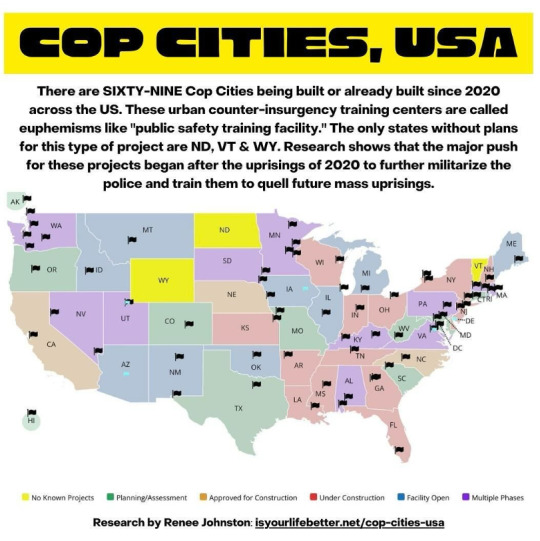
The Stop Cop City movement has sought to prevent the expropriation of part of the Welaunee Forest for the development of an 85-acre police mega training center: a model town to prepare the state’s repressive arms for the urban warfare that will ensue when the contradictions of their exploitation and extraction become uncontainable, as they did in 2020 after the APD murdered Rayshard Brooks. That murder, and all those that came before, were the lodestars of the Black-led movement during the George Floyd uprisings; their demands were no less than the dismantlement of the entire carceral system. Unable to effectively manage or quell the popular street movements, the Atlanta Police Foundation set out to consolidate and expand their capabilities for surveillance, repression, imprisonment, armed violence, and forced disappearance. One result is Cop City, which has been racked by militant sabotage, land occupation, arson, and popular mobilizations, in an attempt to end the construction and return Atlanta to its people. As the Atlanta Police Foundation was unable to contain the 2020 Black rebellion, so too have they been unable to quell the resistance against Cop City. The press reports that the project is hemorrhaging money and is mired in delays and difficulties. For their part, the city, the state, and the federal government, have in turn employed every tool in their power to destroy the movement. Last week, the Georgia State Senate passed a bill to effectively criminalize bail funds in the state; RICO charges have been contorted to target networks of support and care that surround the fighters; and last January, APD assassinated the comrade Tortuguita in cold blood while they rested in their tent in the forest. It is clear that Stop Cop City represents one of the conjunctural spear tips for expanding the existing systems of counterinsurgency that span Africa, Asia, and the Arab world. Today the system’s belly rests atop Gaza, whose rumblings shake the earth upon which we walk. Through its Georgia International Law Enforcement Exchange (GILEE) program, the APD has sent hundreds of police to train with the Zionist occupation forces. And in October 2023, after Tufan al-Aqsa, the Atlanta Police Department engaged in hostage training inside abandoned hotels, putatively intended to “defeat Hamas,” in an advancement of tactics for the targeting of Black people. With every such expansion, the ability of counterinsurgency doctrines to counteract people’s liberation struggles grows. The purpose of counterinsurgency is to marshal state and para-state power into political, social, economic, psychological, and military warfare to overwhelm both militants and the popular cradle—the people—who support them. Its aim is to render us hopeless; to isolate and dispossess us and to break our will to resist it by any and all means necessary. This will continue apace, unless we fight to end it. Stop Cop City remains undeterred: on Friday, an APD cop car was burnt overnight in response to the police operation on February 8; yesterday, two trucks and trailers loaded with lumber were burnt to the ground. An anonymous statement claiming credit for the former, stated: “We wish to dispel any notion that people will take this latest wave of repression lying down, or that arresting alleged arsonists will deter future arsons.” As the U.S. government and Zionist entity set their sights on the Palestinian people sheltering in Rafah, as they continue their relentless genocide of our people in Khan Younis, Jabalia, Shuja’iyya, and Gaza City, the Stop Cop City movement has clearly articulated its solidarity with the Palestinian struggle. They have done so with consistency and discipline, and we have heard them. Our vision of freedom in this life and the next requires us to confront and challenge the entangled forces of oppression in Palestine and in Turtle Island, and to identify the sites of tension upon which these systems distill their forces. This week, as with the last three years, the forest defenders have presented us one such crucible.
(11 Feb 24)
National Lawyers Guild, Stop All Cop Cities: Lessons For a National Struggle (video, 1 hr 45 min)
1K notes
·
View notes
Text
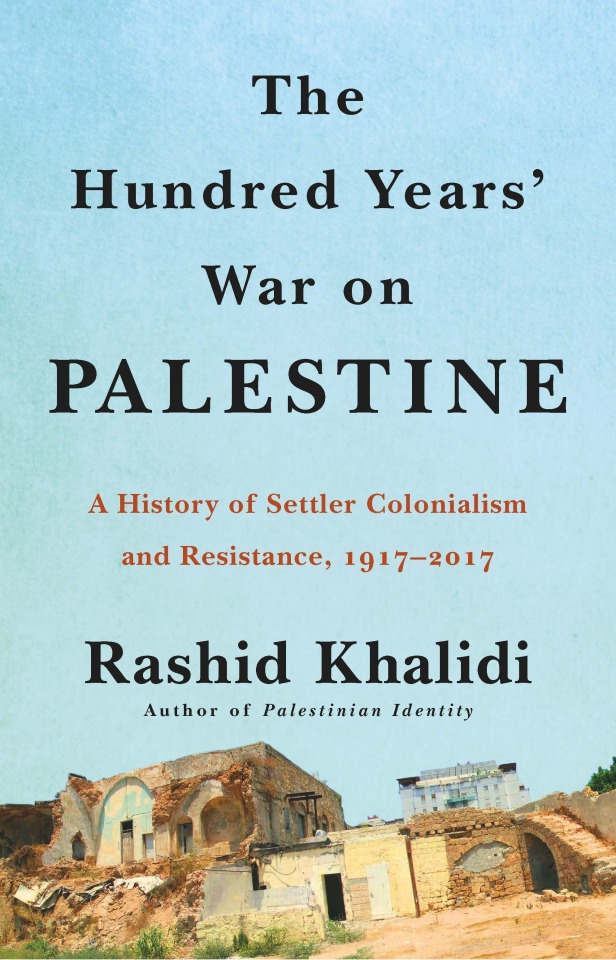
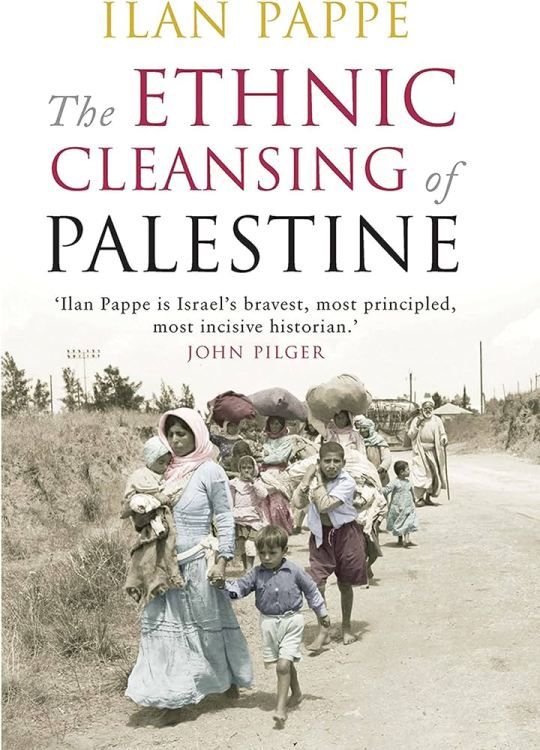
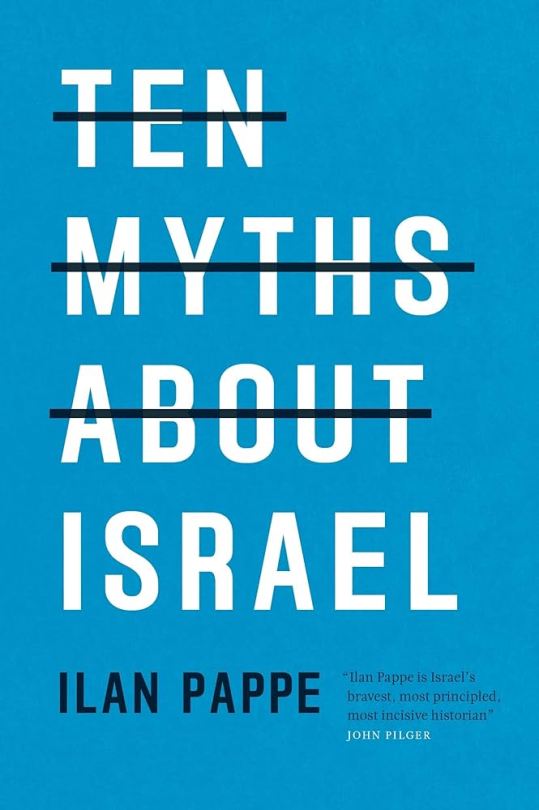
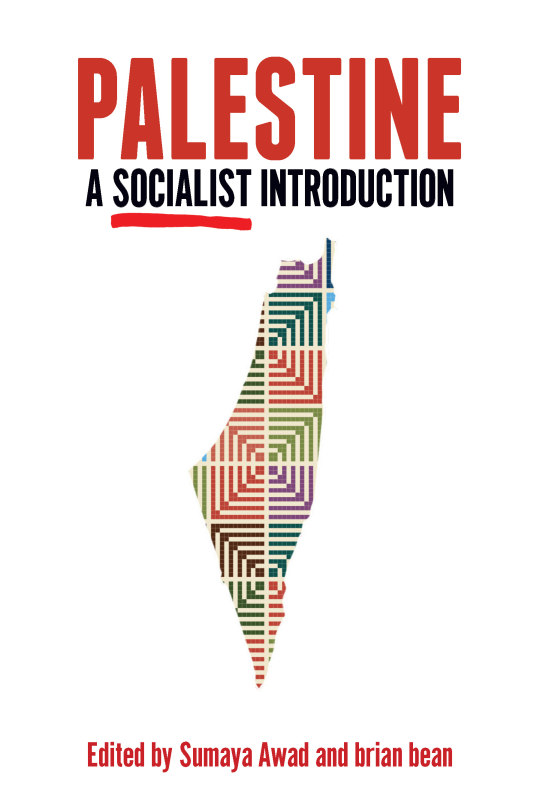
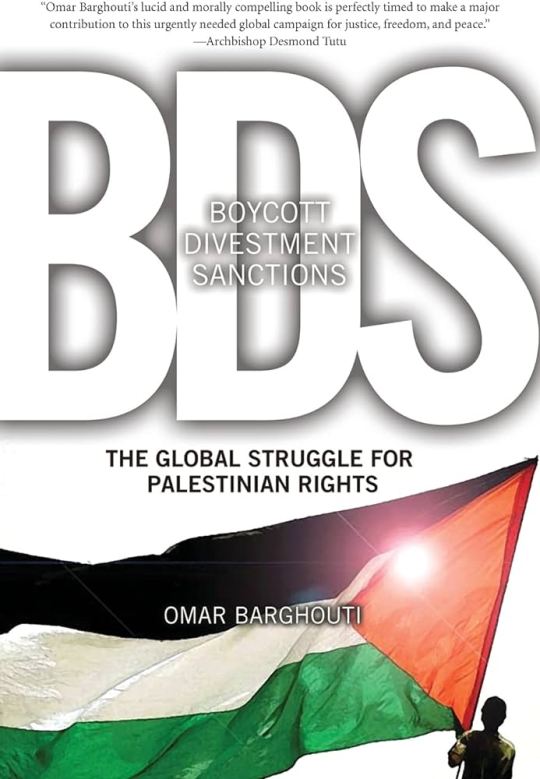
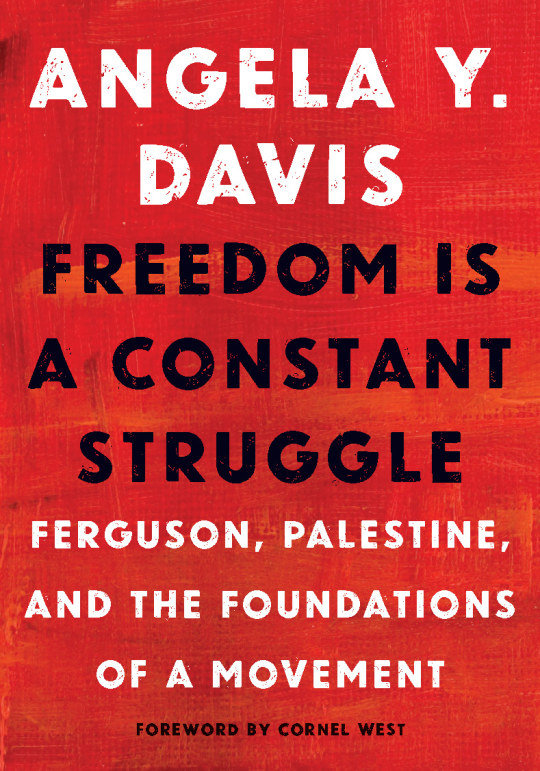
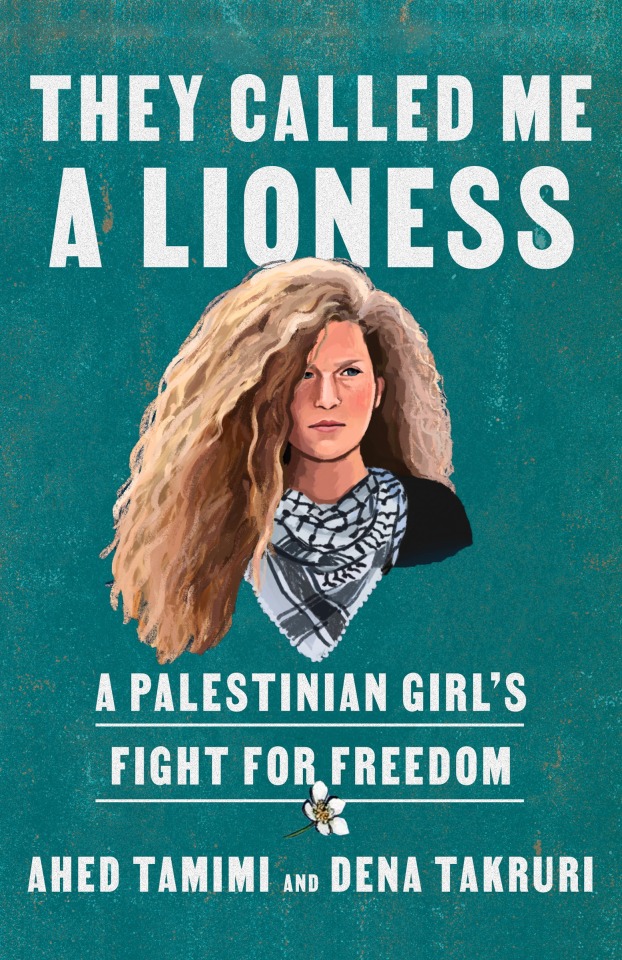
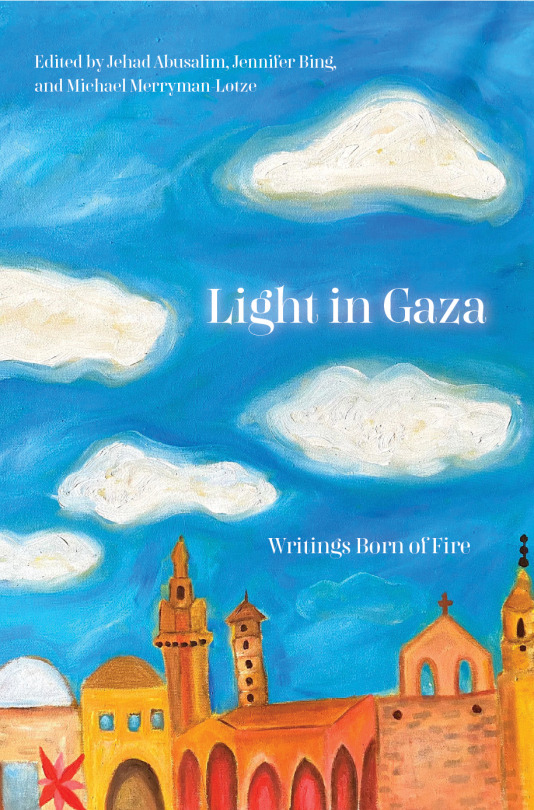
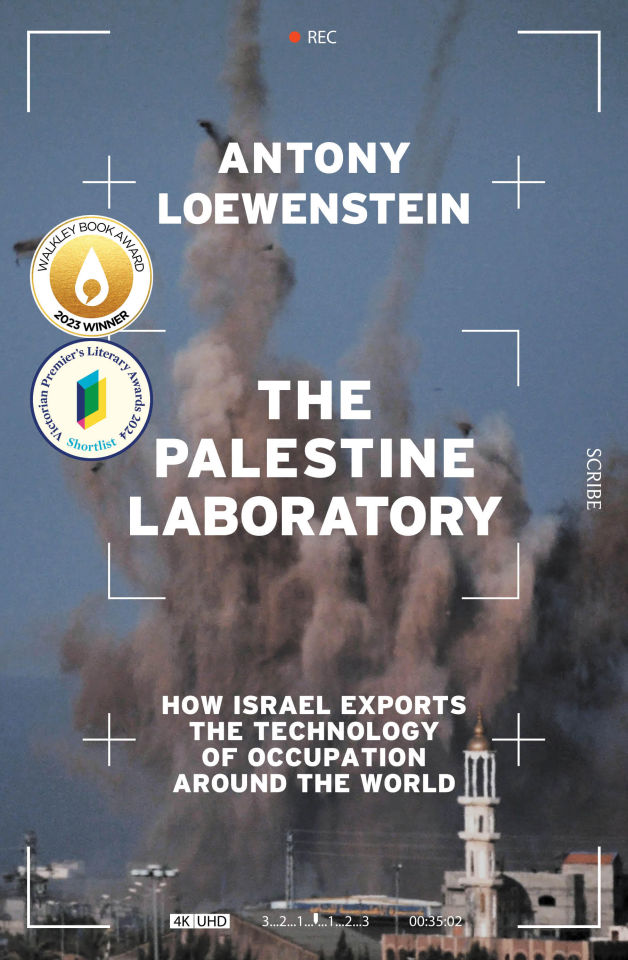
I don't post much about nonfiction on here, but considering the strike this week I thought I'd share some of the books I've read on Palestine/Gaza in the last couple months. I got these for free from haymarket books & verso books (or my library). I recommend picking up some if not all of these.
The Hundred Years War on Palestine & The Ethnic Cleansing of Palestine go into the last 100 years of Palestine's history and occupation
Ten Myths About Israel gives a bit of an more brief overview centred around Israeli propaganda
A Socialist Revolution and BDS go into history & freedom/rights movements & institutional boycotts, in Palestine and globally
Freedom Is A Constant Struggle connects Palestinian liberation movements with Ferguson and Black liberation in the US
They Called Me A Lioness is about the experiences of Palestinians in the West Bank, and a teen girls' 8 month imprisonment
Light In Gaza is various essays on different elements of oppression, resistance, and life in Gaza
The Palestine Laboratory is about Israel's military tech being developed & tested on Palestinians and how it's used all around the world.
Palestinian Walks: Forays Into a Vanishing Landscape: about how the occupation has changed the land over time and the effects of this
#free palestine#if you find nonfiction hard to read try find an audiobook i find i absorb things much better in audio 👍#I actually only just started the last one but#(I'm not great at summarising things but hopefully these make sense)
897 notes
·
View notes
Text
Reminds me of how the British blamed the Acadians for the Mi'kmaq resistance.
The crackdown on campuses offered a grim continuity: Police and other officials churned out all the same old excuses for quashing resistance. Most notably, their rhetoric relied on the predictable canard of the “outside agitator.” New York Mayor Eric Adams trotted it out as grounds for sending in an army of baton-wielding cops against the city’s students. And Deputy Police Commissioner Tarik Sheppard went even further on MSNBC Wednesday morning, brandishing an unremarkable chain lock — the sort of which I’ve seen on bikes everywhere — as proof that “professionals,” not students themselves, had carried out the takeover of the Columbia building. The bike-lock business quickly came in for rightly deserved mockery, but the “outside agitator” myth is no joking matter. In this current moment, the “outside agitators” conjured are both the perennial anarchist bogeymen or Islamist terror groups sending funds to keep student encampments flush with the cheapest tents available online. The “outside agitator” trope has a long, racist legacy, including use by the Ku Klux Klan. In the 1930s, the Klan issued flyers in Alabama claiming that “paid organizers for the communists are only trying” to get Black people “in trouble.” The allegation does double rhetorical harm by denying the agency and commitment of organizers themselves and suggesting that “outside” support from beyond a given locale or institution is somehow a bad thing. More recently, the canard has been hauled out in defense of movement repression in Atlanta, against Stop Cop City protesters who had made a national call for backup. And it was a common refrain for politicians nationwide during the 2020 uprising, as well as discourse around the earlier Black Lives Matter protests in Ferguson after police killed Mike Brown. Blaming outside agitators or interests always was a propaganda ploy and remains so now. The idea that Palestinian liberation struggle is a mere proxy for Iranian interests repeats the delegitimizing logic of the past. In fact, the Gaza solidarity encampments on campuses are student-organized and led, with Palestinian students at front and center, and a disproportionately large presence of Jewish students too. It is students, over 1,000 of them, who have faced arrest. It also happens that millions of people have called for an end to Israel’s genocidal war, and support for Palestinian liberation is not and must not be limited to the mythic and maligned terrain of campus activism.
334 notes
·
View notes
Text
During the Troubles, Civil Rights Leaders went to Ireland to learn about the plight of the Irish people and to support their fight against colonialism.
Standing on the success of their nonviolent principles which led to civil liberties here (to whatever degree the CRM was successful) and in their ignorance of the history of Ireland, they tried to get the IRA to adopt nonviolent, peaceful civil disobedience.
At the end of their tour of Belfast, where they learned the history and politics of Irish resistance, all of them come to the conclusion that here violence is necessary. The Irish have exhausted all other means including nonviolent ones. Even if some of the CRM leaders maintained nonviolence as paramount, they understood that certain exceptions must be made because — regardless of if they approve of violence or not — their job is to support colonized people and follow their lead.
There is a lesson here that we should apply to the Palestinian struggle.
I’ve seen people pearl clutch over seeing so many dead Palestinians as part of the colonial violence of the camera. This misses the point of why those images are being shared.
Last decade many Black americans, myself included, talked about the commodification of Black death. videos of state murder plastered on every news channel 24/7, going viral across social media platforms connected to the legacy of lynching postcards and gator bait. We demonstrated that those videos rarely got an indictment and only once a conviction. Many of the families of these victims of police murder made it clear they don’t want the image of their loved one to be of death. The reason why we share Michael Brown’s graduation photo instead of the photo of his corpse is because Lesley McSpadden demanded it. With all this in mind, we understand that in most cases the sharing of those images are antiblack.
The Palestinians do not have that history. The Nakba never happened, despite israelis calling this the second Nakba. genocide joe said 40 israeli babies were beheaded after it was found out that the story was some wingnut footsoldier’s lie, not even official israeli hasbara. It was like 2 weeks ago that genocide joe said the number of murdered Palestinians (at the time around 5,000 Palestinians were martyred — the number is now over 10,000) was a Hamas lie.
Linguistically there is no murdered Palestinian. All the headlines read “x amount of israelis killed and some palestinians died”. visually there is no dead Palestinian. official israeli hasbara is trying to flood social media with videos of patient-actors getting into place in Indonesian medical training programs to “debunk” the countless videos of martyred Palestinians.
The denial of the scale of israel’s genocide of the Palestinians is so bad that reporters in Gaza are holding dead children in front of press cameras because Palestinians do not die and are not murdered.
The profit motive of these images is actually in their absence. not their over saturation like with Black americans. The west needs israel as a destabilizing force in the middle east. The strategy of the western media then is to bury these images, to not give them a second of attention. So logically the Palestinian strategy is to proliferate these images to show just how horrifying israel’s crimes are.
Two things can be true at the same time; what works for you doesn’t necessarily work for me etc.
The other thing i’m seeing are liberal frameworks to understand genocide. Of particular ire is desirability politics. *jujubee voice* just say white supremacy.
Desirability is tertiary at best. israel is genociding Palestinians because they want control over Gaza and the West Bank (and Lebanon too). They are not genociding Palestinians because Palestinians are “undesirable.” They make Palestinians undesirable to justify taking their land. Talking about this psychoanalytic bullshit distracts from the primary reason for the displacement and mass murder of Palestinians: the taking of their land.
~*desirability*~ is just one way that israel tries to justify its crimes. Desirability is a circular logic that can only make sense once you manufacture its premise irl. It means nothing without the material conditions it claims are true. Its super easy to call someone an animal after you put them in a cage. It’s super easy to call a people dirty savages after you restrict their access to water. It’s super easy to call someone violent after you sequester them in small, barely livable spaces and stress them with bombings and check points.
It’s also — there’s a way in which opposition to something reifies the very thing that you oppose. Toni Morrison continues to beat everybody’s ass. What does it do when you see a baby with half a skull and say “this happened because she is undesirable”? Undesirable to whom? Not me.
Palestinians are not so passive as to oppose white supremacy and desirability. The Palestinian people are a proactive people. Palestine is the issue. Palestine has a people. Palestine has an ecology. Palestine has life. Palestine is life. Palestinians fight for life. life can neither exist nor blossom under white supremacy.
Any analysis that does not begin with this is a distraction. And distractions only benefit the colonizers.
437 notes
·
View notes
Text
black & palestinian solidarities
if you support black liberation but are unsure of your stance on palestinian resistance, here’s a reminder that they are deeply intertwined. after the 1917 balfour declaration by the british government announcing the first support for a zionist state in palestine, zionism and israeli occupation of palestine have followed similar ideologies and practices to white supremacist settler colonial projects, so solidarity between black and palestinian communities has grown over time, seeing each other as fellow anti-imperialist and anti-racist struggles. (if you get a paywall for any of the sources below, try searching them in google scholar.)
palestinians have been inspired by and shown support for black liberationist struggles as early as the 1930s, when arabic-language newspapers in palestine wrote about the struggle by black folks in the united states and framed it as anti-colonial, as well as opposing the 1935 invasion by fascist italy of ethiopia, the only independent black african state at the time. palestinian support for black struggles grew in the 1960s with the emergence of newly-independent african states, the development of black and third world internationalisms, and the civil rights movement in the united states. palestinian writers have expressed this solidarity too: palestinian activist samih al-qasim showed his admiration for congolese independence leader patrice lumumba in a poem about him, while palestinian poet mahmoud darwish’s “letters to a negro” essays spoke directly to black folks in the united states about shared struggles.
afro-palestinians have a rich history of freedom fighting against israeli apartheid, where they face oppression at the intersections of their black and palestinian identities. some families trace their roots back hundreds of years, while others came to jerusalem in the nineteenth century from chad, sudan, nigeria, and senegal after performing the hajj (the islamic pilgrimage to mecca) and settled down. still others came to palestine in the 1940s specifically to join the arab liberation army, where they fought against israel’s ethnic cleansing of palestinians during the 1948 nakba (“catastrophe”). afro-palestinian freedom fighter fatima bernawi, who was of nigerian, palestinian, and jordanian descent, became, in 1967, the first palestinian woman to be organize an operation against israel, and subsequently the first palestinian woman to be imprisoned by israel. the history of afro-palestinian resistance continues today: even as the small afro-palestinian community in jerusalem is highly-surveilled, over-policed, disproportionately incarcerated, and subjected to racist violence, they continue to organize and fight for palestinian liberation.
black revolutionaries and leaders in the united states have supported the palestinian struggle for decades, with a ramp-up since the 1960s. malcolm x became a huge opponent of zionism after traveling to southwest asia and north africa (SWANA), publishing “zionist logic” in 1964, and becoming one of the first black leaders from the united states to meet with the newly formed palestine liberation organization. the black panther party and the third world women’s alliance, a revolutionary socialist organization for women of color, also supported palestinian resistance in the 1970s. writers like maya angelou, june jordan, and james baldwin have long spoken out for palestinians. dr. angela davis (who received support from palestinian political prisoners when she was incarcerated) has made black and palestinian solidarity a key piece of her work. and many, many more black leaders and revolutionaries in the united states have supported palestinian freedom.
while israel has long courted relationships with the african union and its members, there has been ongoing tension between them since at least the 1970s, when all but four african states (malawi, lesotho, swaziland, and mauritius) cut off diplomatic ties with israel after the 1973 october war. while many of those diplomatic relationships were reestablished in subsequent decades, they remain rocky, and earlier this year, the african union booted an israeli diplomat from their annual summit in addis ababa, ethiopia, and issued a draft declaration on the situation in palestine and the middle east that expressed “full support for the palestinian people in their legitimate struggle against the israeli occupation”, naming israeli settlements as illegal and calling for boycotts and sanctions with israel. grassroots organizations like africa 4 palestine have also been key in the BDS (boycott, divestment, sanctions) movement.
in south africa, comparisons between israel and south african apartheid have been prevalent since the 1990s and early 2000s. israel historically allied with apartheid-era south africa, while palestinians opposed south african apartheid, leading nelson mandela to support the palestinian liberation organization as "fighting for the right of self-determination"; over the years his statements have been joined by fellow black african freedom fighters like nozizwe madlala-routledge and desmond tutu. post-apartheid south africa has continued to be a strong ally to palestine, calling for israel to be declared “apartheid state”.
black and palestinian solidarities have continued into the 21st century. palestinian people raised money to send to survivors of hurricane katrina in the united states in 2005 (which disproportionately harmed black communities in new orleans and the gulf of mexico) and the devastating earthquake in haiti in 2010. in the past decade, the global black lives matter struggle has brought new emphasis to shared struggles. prison and police abolitionists have long noted the deadly exchange which brings together police, ICE, border patrol, and FBI agents from the united states to train with soldiers, police, and border agents from israel. palestinian freedom fighters supported the 2014 uprising in ferguson in the united states, and shared strategies for resisting state violence. over a thousand black leaders signed onto the 2015 black solidarity statement with palestine. the murder of george floyd by american cops in 2020 has sparked further allyship, including black lives matter protests in palestine, with organizations like the dream defenders making connections between palestinian and black activists.
this is just a short summary that i came up because i've been researching black and asian solidarities recently so i had some sources on hand; there's obviously so much more that i haven't covered, so please feel free to reblog with further additions to this history!
#free palestine#black liberation#black and palestinian solidarity#black and asian solidarity#original
667 notes
·
View notes
Text
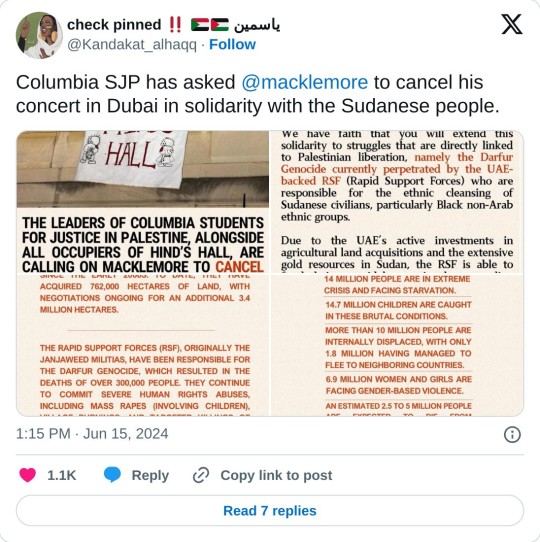
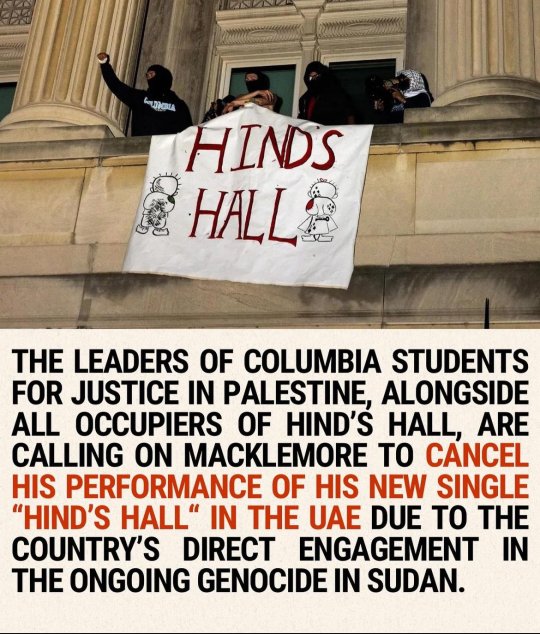
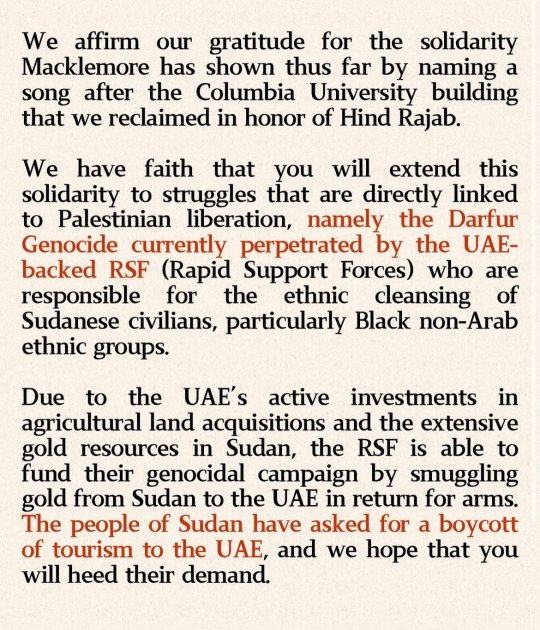
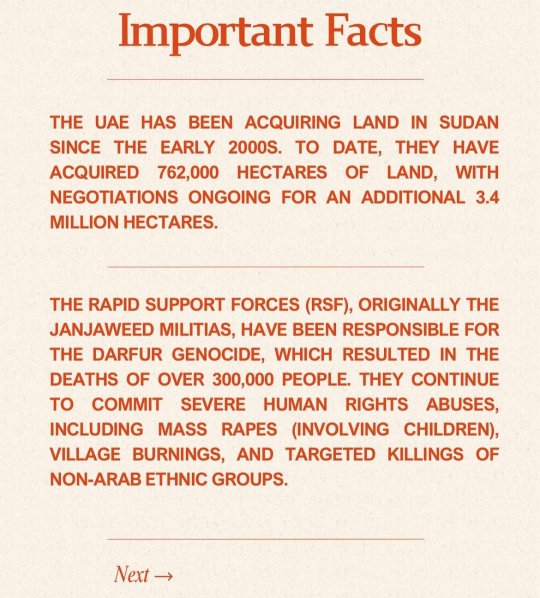
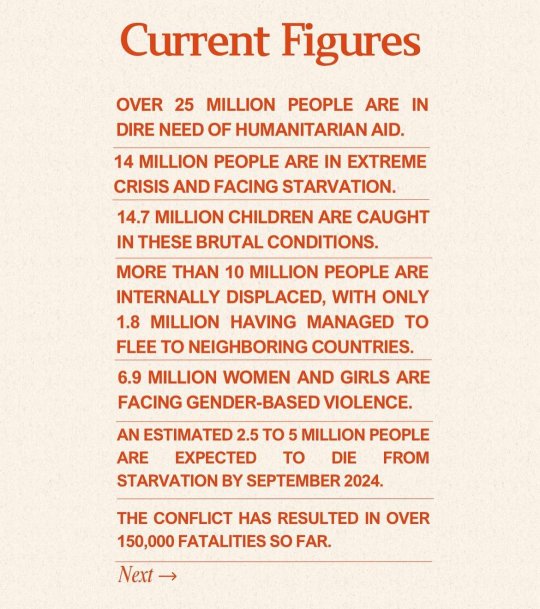
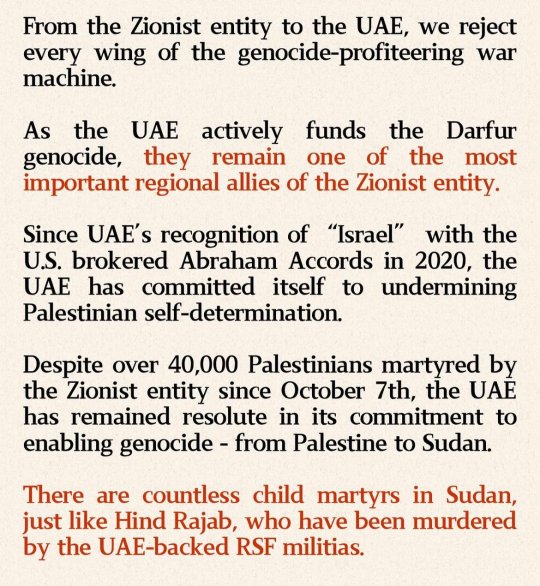
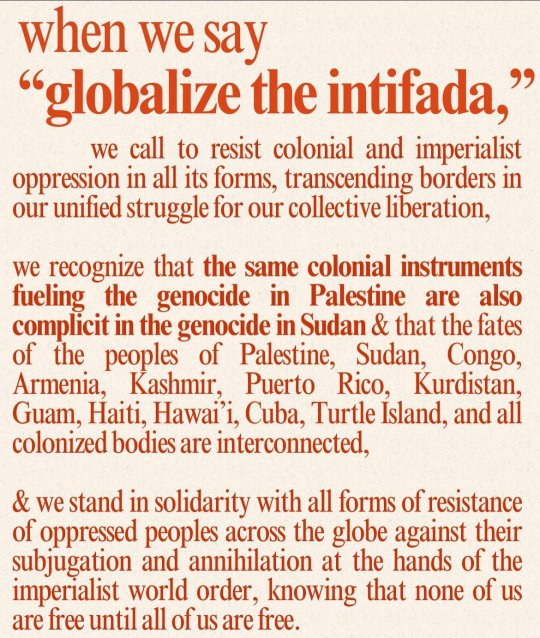
[ID: A screenshot of a tweet by Kandakat_alhaqq from June 15 2024, reading, "Columbia SJP has asked (at) Macklemore to cancel his concert in Dubai in solidarity with the Sudanese people."
Below this is a preview of several images, which are then shared in full below the tweet:
The first image shows a photo of protestors holding a banner that reads in red, "Hind's Hall", with versions of of Handala, a cartoon of a ten year old Palestinian child, standing with back to the camera, on either side.
Below this the three images have black and red text reading, in full:
The leaders of Columbia Students for Justice in Palestine, alongside all occupiers of Hind's Hall, are calling on Macklemore to cancel his perfomance of his new single "Hind's Hall" in the U.A.E. due to the country's direct engagement in the ongoing genocide in Sudan.
We affirm our gratitude for the solidarity Macklemore has shown thus far by naming a song after the Columbia University building that we reclaimed in honor of Hind Rajab.
We have faith that you will extend this solidarity to struggles that are directly linked to Palestinian liberation, namely the Darfur Genocide currently perpetuated by the U.A.E.-backed RSF (Rapid Support Forces) who are responsible for the ethnic cleansing of Sudanese civilians, particularly Black non-Arab ethnic groups.
Due to the U.A.E.'s active investments in agricultural land acquisitions and the extensive gold resources in Sudan, the R.S.F. is able to fund their genocidal campaign by smuggling gold from Sudan to the U.A.E. in return for arms. The people of Sudan have asked for a boycott of tourism to the U.A.E., and we hope that you will heed their demand.
Important facts:
The U.A.E. has been acquiring land in Sudan since the early 200s.
563 notes
·
View notes
Text
Writers Against the War on Gaza (WAWOG) is an ad hoc coalition committed to solidarity and the horizon of liberation for the Palestinian people. Drawing together writers, editors, and other culture workers, WAWOG hopes to provide ongoing infrastructure for cultural organizing in response to the war. This project is modeled on American Writers Against the War in Vietnam, an organization founded in 1965.
Statement of Solidarity
October 26, 2023
Israel’s war against Gaza is an attempt to conduct genocide against the Palestinian people. This war did not begin on October 7th. However, in the last 19 days, the Israeli military has killed over 6,500 Palestinians, including more than 2,500 children, and wounded over 17,000. Gaza is the world’s largest open-air prison: its 2 million residents—a majority of whom are refugees, descendants of those whose land was stolen in 1948—have been deprived of basic human rights since the blockade in 2006. We share the assertions of human rights groups, scholars, and, above all, everyday Palestinians: Israel is an apartheid state, designed to privilege Jewish citizens at the expense of Palestinians, heedless of the many Jewish people, both in Israel and across the diaspora, who oppose their own conscription in an ethno-nationalist project.
We come together as writers, journalists, academics, artists, and other culture workers to express our solidarity with the people of Palestine. We stand with their anticolonial struggle for freedom and for self-determination, and with their right to resist occupation. We stand firmly by Gaza’s people, victims of a genocidal war the United States government continues to fund and arm with military aid—a crisis compounded by the illegal settlement and dispossession of the West Bank and the subjugation of Palestinians within the state of Israel.
We stand in opposition to the silencing of dissent and to racist and revisionist media cycles, further perpetuated by Israel’s attempts to bar reporting in Gaza, where journalists have been both denied entry and targeted by Israeli forces. At least 24 journalists in Gaza have now been killed. Internationally, writers and cultural workers have faced severe harassment, workplace retribution, and job loss for expressing solidarity with Palestine, whether by stating facts about their continued occupation, or for amplifying the voices of others. These are instances that mark severe incursions against supposed speech protections. Specious charges of antisemitism are leveled against Zionism’s critics; political repression has been particularly aggressive against the free speech of Muslim, Arab, and Black people living in the US and across the globe. As was the case following the September 11th attacks, Islamophobic political fervor and the widespread circulation of unsubstantiated claims has galvanized a US-led coalition of military support for a brutal campaign of violence.
What can we do to intervene against Israel’s eliminationist assault on the Palestinian people? Words alone cannot stop the onslaught of devastation of Palestinian homes and lives, backed shamelessly and without hesitation by the entire axis of Western power. At the same time, we must reckon with the role words and images play in the war on Gaza and the ferocious support they have engendered: Israel’s defense minister announced the siege as a fight against “human animals”; even as we learned that Israel had rained bombs down on densely populated urban neighborhoods and deployed white phosphorus in Gaza City, the New York Times editorial board wrote that “what Israel is fighting to defend is a society that values human life and the rule of law”; establishment media outlets continue to describe Hamas’s attack on Israel as “unprovoked.” Writers Against the War on Gaza rejects this perversion of meaning, wherein a nuclear state can declare itself a victim in perpetuity while openly enacting genocide. We condemn those in our industries who continue to enable apartheid and genocide. We cannot write a free Palestine into existence, buttogether we must do all we possibly can to reject narratives that soothe Western complicity in ethnic cleansing.
We act alongside other writers, scholars, and artists who have expressed solidarity with the Palestinian cause, drawing inspiration from the Palestinian spirit of sumud, steadfastness, and resistance. Since 2004, the Palestinian Campaign for the Academic and Cultural Boycott of Israel (PACBI) has advocated for organizations to join a boycott of institutions representing the Israeli state or cultural institutions complicit with its apartheid regime. We call on all our colleagues working in cultural institutions to endorse that boycott. And we invite writers, editors, journalists, scholars, artists, musicians, actors, and anyone in creative and academic work to sign this statement. Join us in building a new cultural front for a free Palestine.
Signed,
WAWOG Interim Organizing Committee
Hannah Black
Ari Brostoff (Senior Editor, Jewish Currents)
Elena Comay del Junco
Kyle Dacuyan (Executive Director, Poetry Project)
Kay Gabriel (Editorial Director, Poetry Project)
Kaleem Hawa
E. Tammy Kim
Shiv Kotecha
Wendy Lotterman (Associate Editor, Parapraxis)
Muna Mire
Perwana Nazif
Brendan O'Connor
Alex Press (Staff Writer, Jacobin)
Sarah Nicole Prickett
Dylan Saba
Zoé Samudzi (Associate Editor, Parapraxis)
Jasmine Sanders
Claire Schwartz (Culture Editor, Jewish Currents)
Janique Vigier
Harron Walker
Chloe Watlington
Gabriel Winant (Department of History, University of Chicago)
Audrey Wollen
Hannah Zeavin (Founding Editor, Parapraxis)
Signed, In Solidarity
Fatimah Warner (Noname)
Saul Williams
Susan Sarandon
Janeane Garofalo
Gael García Bernal
Danez Smith
Ocean Vuong
Aria Aber
Saidiya Hartman
China Miéville
+ full list here
#writers against the war on gaza#wawog#free palestine#this letter is the one#you know how i encountered this when you see one of the people who signed#text#noname#susan sarandon#saul williams#gael garcia bernal#ocean vuong#joel kim booster#what a pleasant surprise#patti harrison#fariha roisin#zoe samudzi
237 notes
·
View notes
Text
essential reading.
Opinion - There is a Jewish Hope for Palestinian Liberation. It Must Survive. - by Peter Beinart
And perhaps one day, when it finally becomes hideously clear that Hamas cannot free Palestinians by murdering children and Israel cannot subdue Gaza, even by razing it to the ground, those communities may become the germ of a mass movement for freedom that astonishes the world, as Black and white South Africans did decades ago. I’m confident I won’t live to see it. No gambler would stake a bet on it happening at all. But what’s the alternative, for those of us whose lives and histories are bound up with that small, ghastly, sacred place?
"In 1988, bombs exploded at restaurants, sporting events and arcades in South Africa. In response, the African National Congress, then in its 77th year of a struggle to overthrow white domination, did something remarkable: It accepted responsibility and pledged to prevent its fighters from conducting such operations in the future. Its logic was straightforward: Targeting civilians is wrong. “Our morality as revolutionaries,” the A.N.C. declared, “dictates that we respect the values underpinning the humane conduct of war.”
Historically, geographically and morally, the A.N.C. of 1988 is a universe away from the Hamas of 2023, so remote that its behavior may seem irrelevant to the horror that Hamas unleashed last weekend in southern Israel. But South Africa offers a counter-history, a glimpse into how ethical resistance works and how it can succeed. It offers not an instruction manual, but a place — in this season of agony and rage — to look for hope.
There was nothing inevitable about the A.N.C.’s policy, which, as Jeff Goodwin, a New York University sociologist, has documented, helped ensure that there was “so little terrorism in the anti-apartheid struggle.” So why didn’t the A.N.C. carry out the kind of gruesome massacres for which Hamas has become notorious? There’s no simple answer. But two factors are clear. First, the A.N.C.’s strategy for fighting apartheid was intimately linked to its vision of what should follow apartheid. It refused to terrify and traumatize white South Africans because it wasn’t trying to force them out. It was trying to win them over to a vision of a multiracial democracy.
ADVERTISEMENT
Second, the A.N.C. found it easier to maintain moral discipline — which required it to focus on popular, nonviolent resistance and use force only against military installations and industrial sites — because its strategy was showing signs of success. By 1988, when the A.N.C. expressed regret for killing civilians, more than 150 American universities had at least partially divested from companies doing business in South Africa, and the United States Congress had imposed sanctions on the apartheid regime. The result was a virtuous cycle: Ethical resistance elicited international support, and international support made ethical resistance easier to sustain.
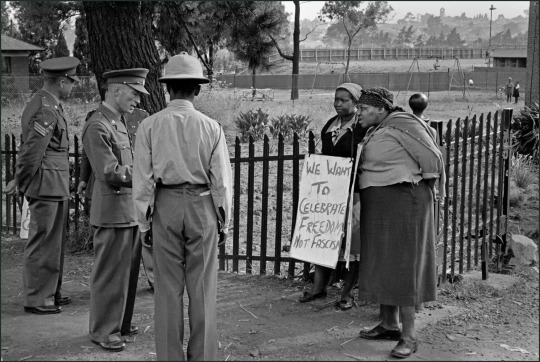
In Israel today, the dynamic is almost exactly the opposite. Hamas, whose authoritarian, theocratic ideology could not be farther from the A.N.C.’s, has committed an unspeakable horror that may damage the Palestinian cause for decades to come. Yet when Palestinians resist their oppression in ethical ways — by calling for boycotts, sanctions and the application of international law — the United States and its allies work to ensure that those efforts fail, which convinces many Palestinians that ethical resistance doesn’t work, which empowers Hamas.
The savagery Hamas committed on Oct. 7 has made reversing this monstrous cycle much harder. It could take a generation. It will require a shared commitment to ending Palestinian oppression in ways that respect the infinite value of every human life. It will require Palestinians to forcefully oppose attacks on Jewish civilians, and Jews to support Palestinians when they resist oppression in humane ways — even though Palestinians and Jews who take such steps will risk making themselves pariahs among their own people. It will require new forms of political community, in Israel-Palestine and around the world, built around a democratic vision powerful enough to transcend tribal divides. The effort may fail. It has failed before. The alternative is to descend, flags waving, into hell.
As Jewish Israelis bury their dead and recite psalms for their captured, few want to hear at this moment that millions of Palestinians lack basic human rights. Neither do many Jews abroad. I understand; this attack has awakened the deepest traumas of our badly scarred people. But the truth remains: The denial of Palestinian freedom sits at the heart of this conflict, which began long before Hamas’s creation in the late 1980s.
Most of Gaza’s residents aren’t from Gaza. They’re the descendants of refugees who were expelled, or fled in fear, during Israel’s war of independence in 1948. They live in what Human Rights Watch has called an “open-air prison,” penned in by an Israeli state that — with help from Egypt — rations everything that goes in and out, from tomatoes to the travel documents children need to get lifesaving medical care. From this overcrowded cage, which the United Nations in 2017 declared “unlivable” for many residents in part because it lacks electricity and clean water, many Palestinians in Gaza can see the land that their parents and grandparents called home, though most may never step foot in it.
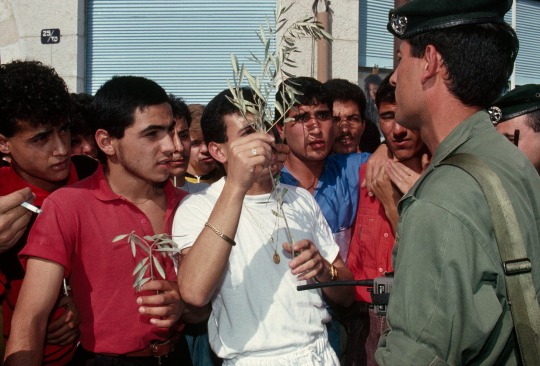
Palestinians in the West Bank are only slightly better off. For more than half a century, they have lived without due process, free movement, citizenship or the ability to vote for the government that controls their lives. Defenseless against an Israeli government that includes ministers openly committed to ethnic cleansing, many are being driven from their homes in what Palestinians compare to the mass expulsions of 1948. Americans and Israeli Jews have the luxury of ignoring these harsh realities. Palestinians do not. Indeed, the commander of Hamas’s military wing cited attacks on Palestinians in the West Bank in justifying its barbarism last weekend.
Just as Black South Africans resisted apartheid, Palestinians resist a system that has earned the same designation from the world’s leading human rights organizations and Israel’s own. After last weekend, some critics may claim Palestinians are incapable of resisting in ethical ways. But that’s not true. In 1936, during the British mandate, Palestinians began what some consider the longest anticolonial general strike in history. In 1976, on what became known as Land Day, thousands of Palestinian citizens demonstrated against the Israeli government’s seizure of Palestinian property in Israel’s north. The first intifada against Israel’s occupation of the West Bank and the Gaza Strip, which lasted from roughly 1987 to 1993, consisted primarily of nonviolent boycotts of Israeli goods and a refusal to pay Israeli taxes. While some Palestinians threw stones and Molotov cocktails, armed attacks were rare, even in the face of an Israeli crackdown that took more than 1,000 Palestinian lives. In 2005, 173 Palestinian civil society organizations asked “people of conscience all over the world to impose broad boycotts and implement divestment initiatives against Israel similar to those applied to South Africa in the apartheid era.”
But in the United States, Palestinians received little credit for trying to follow Black South Africans’ largely nonviolent path. Instead, the Boycott, Divestment and Sanctions movement’s call for full equality, including the right of Palestinian refugees to return home, was widely deemed antisemitic because it conflicts with the idea of a state that favors Jews.
It is true that these nonviolent efforts sit uncomfortably alongside an ugly history of civilian massacres: the murder of 67 Jews in Hebron in 1929 by local Palestinians after Haj Amin al-Husseini, the grand mufti of Jerusalem, claimed Jews were about to seize Al Aqsa Mosque; the airplane hijackings of the late 1960s and 1970s carried out primarily by the leftist Popular Front for the Liberation of Palestine and Yasir Arafat’s nationalist Fatah faction; the 1972 assassination of Israeli athletes in Munich carried out by the Palestinian organization Black September; and the suicide bombings of the 1990s and 2000s conducted by Hamas, Palestinian Islamic Jihad and Fatah’s Aqsa Martyrs Brigades, whose victims included a friend of mine in rabbinical school who I dreamed might one day officiate my wedding.
And yet it is essential to remember that some Palestinians courageously condemned this inhuman violence. In 1979, Edward Said, the famed literary critic, declared himself “horrified at the hijacking of planes, the suicidal missions, the assassinations, the bombing of schools and hotels.” Rashid Khalidi, a Palestinian American historian, called the suicide bombings of the second intifada “a war crime.” After Hamas’s attack last weekend, a member of the Israeli parliament, Ayman Odeh, among the most prominent leaders of Israel’s Palestinian citizens, declared, “It is absolutely forbidden to accept any attacks on the innocent.”Tragically, this vision of ethical resistance is being repudiated by some pro-Palestinian activists in the United States. In a statement last week, National Students for Justice in Palestine, which represents more than 250 Palestinian solidarity groups in North America, called Hamas’s attack “a historic win for the Palestinian resistance” that proves that “total return and liberation to Palestine is near” and added, “from Rhodesia to South Africa to Algeria, no settler colony can hold out forever.” One of its posters featured a paraglider that some Hamas fighters used to enter Israel.
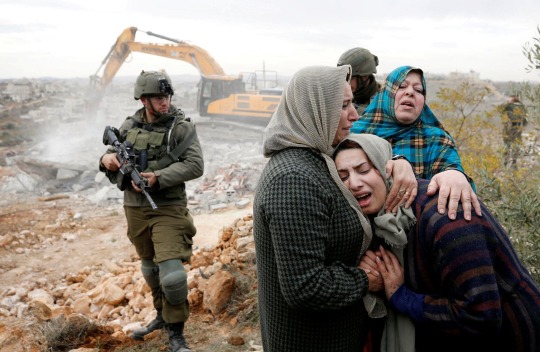
The reference to Algeria reveals the delusion underlying this celebration of abduction and murder. After eight years of hideous war, Algeria’s settlers returned to France. But there will be no Algerian solution in Israel-Palestine. Israel is too militarily powerful to be conquered. More fundamentally, Israeli Jews have no home country to which to return. They are already home.
Mr. Said understood this. “The Israeli Jew is there in the Middle East,” he advised Palestinians in 1974, “and we cannot, I might even say that we must not, pretend that he will not be there tomorrow, after the struggle is over.” The Jewish “attachment to the land,” he added, “is something we must face.” Because Mr. Said saw Israeli Jews as something other than mere colonizers, he understood the futility — as well as the immorality — of trying to terrorize them into flight.
The failure of Hamas and its American defenders to recognize that will make it much harder for Jews and Palestinians to resist together in ethical ways. Before last Saturday, it was possible, with some imagination, to envision a joint Palestinian-Jewish struggle for the mutual liberation of both peoples. There were glimmers in the protest movement against Benjamin Netanyahu’s judicial overhaul, through which more and more Israeli Jews grasped a connection between the denial of rights to Palestinians and the assault on their own. And there were signs in the United States, where almost 40 percent of American Jews under the age of 40 told the Jewish Electoral Institute in 2021 that they considered Israel an apartheid state. More Jews in the United States, and even Israel, were beginning to see Palestinian liberation as a form of Jewish liberation as well.
That potential alliance has now been gravely damaged. There are many Jews willing to join Palestinians in a movement to end apartheid, even if doing so alienates us from our communities, and in some cases, our families. But we will not lock arms with people who cheer the kidnapping or murder of a Jewish child.
The struggle to persuade Palestinian activists to repudiate Hamas’s crimes, affirm a vision of mutual coexistence and continue the spirit of Mr. Said and the A.N.C. will be waged inside the Palestinian camp. The role of non-Palestinians is different: to help create the conditions that allow ethical resistance to succeed.
Palestinians are not fundamentally different from other people facing oppression: When moral resistance doesn’t work, they try something else. In 1972, the Northern Ireland Civil Rights Association, which was modeled on the civil rights movement in the United States, organized a march to oppose imprisonment without trial. Although some organizations, most notably the Provisional Irish Republican Army, had already embraced armed resistance, they grew stronger after British soldiers shot 26 unarmed civilians in what became known as Bloody Sunday. By the early 1980s, the Irish Republican Army had even detonated a bomb outside Harrods, the department store in London. As Kirssa Cline Ryckman, a political scientist, observed in a 2019 paper on why certain movements turn violent, a lack of progress in peaceful protest “can encourage the use of violence by convincing demonstrators that nonviolence will fail to achieve meaningful concessions.”
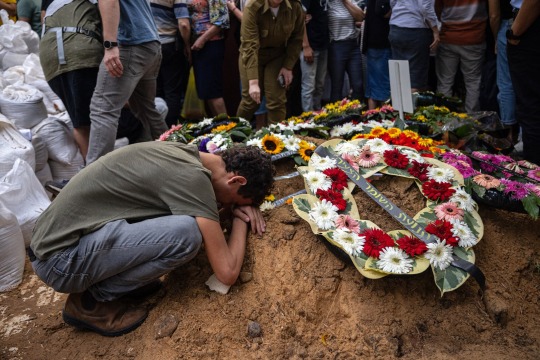
Israel, with America’s help, has done exactly that. It has repeatedly undermined Palestinians who sought to end Israel’s occupation through negotiations or nonviolent pressure. As part of the 1993 Oslo Accords, the Palestine Liberation Organization renounced violence and began working with Israel — albeit imperfectly — to prevent attacks on Israelis, something that revolutionary groups like the A.N.C. and the Irish Republican Army never did while their people remained under oppression. At first, as Khalil Shikaki, a Palestinian political scientist, has detailed, Palestinians supported cooperation with Israel because they thought it would deliver them a state. In early 1996, Palestinian support for the Oslo process reached 80 percent while support for violence against Israelis dropped to 20 percent.
The 1996 election of Benjamin Netanyahu, and the failure of Israel and its American patron to stop settlement growth, however, curdled Palestinian sentiment. Many Jewish Israelis believe that Ehud Barak, who succeeded Mr. Netanyahu, offered Palestinians a generous deal in 2000. Most Palestinians, however, saw Mr. Barak’s offer as falling far short of a fully sovereign state along the 1967 lines. And their disillusionment with a peace process that allowed Israel to entrench its hold over the territory on which they hoped to build their new country ushered in the violence of the second intifada. In Mr. Shikaki’s words, “The loss of confidence in the ability of the peace process to deliver a permanent agreement on acceptable terms had a dramatic impact on the level of Palestinian support for violence against Israelis.” As Palestinians abandoned hope, Hamas gained power.
After the brutal years of the second intifada, in which Hamas and other Palestinian armed groups repeatedly targeted Israeli civilians, President Mahmoud Abbas of the Palestinian Authority and Salam Fayyad, his prime minister from 2007 to 2013, worked to restore security cooperation and prevent anti-Israeli violence once again. Yet again, the strategy failed. The same Israeli leaders who applauded Mr. Fayyad undermined him in back rooms by funding the settlement growth that convinced Palestinians that security cooperation was bringing them only deepening occupation. Mr. Fayyad, in an interview with The Times’s Roger Cohen before he left office in 2013, admitted that because the “occupation regime is more entrenched,” Palestinians “question whether the P.A. can deliver. Meanwhile, Hamas gains recognition and is strengthened.”
As Palestinians lost faith that cooperation with Israel could end the occupation, many appealed to the world to hold Israel accountable for its violation of their rights. In response, both Democratic and Republican presidents have worked diligently to ensure that these nonviolent efforts fail. Since 1997, the United States has vetoed more than a dozen United Nations Security Council resolutions criticizing Israel for its actions in the West Bank and Gaza. This February, even as Israel’s far-right government was beginning a huge settlement expansion, the Biden administration reportedly wielded a veto threat to drastically dilute a Security Council resolution that would have condemned settlement growth.
Washington’s response to the International Criminal Court’s efforts to investigate potential Israeli war crimes is equally hostile. Despite lifting sanctions that the Trump administration imposed on I.C.C. officials investigating the United States’s conduct in Afghanistan, the Biden team remains adamantly opposed to any I.C.C. investigation into Israel’s actions.
The Boycott, Divestment and Sanctions movement, or B.D.S., which was founded in 2005 as a nonviolent alternative to the murderous second intifada and which speaks in the language of human rights and international law, has been similarly stymied, including by many of the same American politicians who celebrated the movement to boycott, divest from and sanction South Africa. Joe Biden, who is proud of his role in passing sanctions against South Africa, has condemned the B.D.S. movement, saying it “too often veers into antisemitism.” About 35 states — some of which once divested state funds from companies doing business in apartheid South Africa — have passed laws or issued executive orders punishing companies that boycott Israel. In many cases, those punishments apply even to businesses that boycott only Israeli settlements in the West Bank.
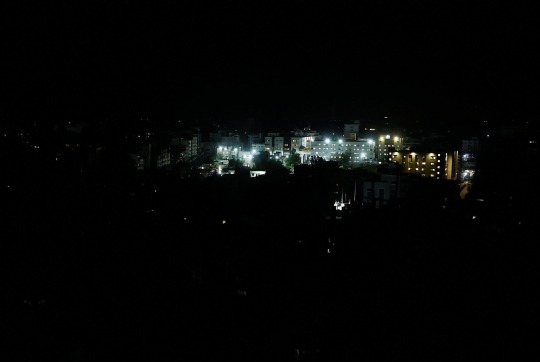
Palestinians have noticed. In the words of Dana El Kurd, a Palestinian American political scientist, “Palestinians have lost faith in the efficacy of nonviolent protest as well as the possible role of the international community.” Mohammed Deif, the commander of Hamas’s military wing, cited this disillusionment during last Saturday’s attack. “In light of the orgy of occupation and its denial of international laws and resolutions, and in light of American and Western support and international silence,” he declared, “we’ve decided to put an end to all this.”
Hamas — and no one else — bears the blame for its sadistic violence. But it can carry out such violence more easily, and with less backlash from ordinary Palestinians, because even many Palestinians who loathe the organization have lost hope that moral strategies can succeed. By treating Israel radically differently from how the United States treated South Africa in the 1980s, American politicians have made it harder for Palestinians to follow the A.N.C.’s ethical path. The Americans who claim to hate Hamas the most have empowered it again and again.
Israelis have just witnessed the greatest one-day loss of Jewish life since the Holocaust. For Palestinians, especially in Gaza, where Israel has now ordered more than one million people in the north to leave their homes, the days to come are likely to bring dislocation and death on a scale that should haunt the conscience of the world. Never in my lifetime have the prospects for justice and peace looked more remote. Yet the work of moral rebuilding must begin. In Israel-Palestine and around the world, pockets of Palestinians and Jews, aided by people of conscience of all backgrounds, must slowly construct networks of trust based on the simple principle that the lives of both Palestinians and Jews are precious and inextricably intertwined.
Israel desperately needs a genuinely Jewish and Palestinian political party, not because it can win power but because it can model a politics based on common liberal democratic values, not tribe. American Jews who rightly hate Hamas but know, in their bones, that Israel’s treatment of Palestinians is profoundly wrong must ask themselves a painful question: What nonviolent forms of Palestinian resistance to oppression will I support? More Palestinians and their supporters must express revulsion at the murder of innocent Israeli Jews and affirm that Palestinian liberation means living equally alongside them in safety and freedom.
From those reckonings, small, beloved communities can be born, and grow. And perhaps one day, when it finally becomes hideously clear that Hamas cannot free Palestinians by murdering children and Israel cannot subdue Gaza, even by razing it to the ground, those communities may become the germ of a mass movement for freedom that astonishes the world, as Black and white South Africans did decades ago. I’m confident I won’t live to see it. No gambler would stake a bet on it happening at all. But what’s the alternative, for those of us whose lives and histories are bound up with that small, ghastly, sacred place?
Like many others who care about the lives of both Palestinians and Jews, I have felt in recent days the greatest despair I have ever known. On Wednesday, a Palestinian friend sent me a note of consolation. She ended it with the words “only together.” Maybe that can be our motto.
#articles#definitely one of the best most extensive most personal most meaningful articles i've read this week#also addresses a LOT of uh. talking points recently
288 notes
·
View notes
Text
"To us, to liberate our country, to have dignity, to have respect, to have our mere human rights is something as essential as life itself."
Ghassan Kanafani, born in Acre, Palestine, 1936, was a distinguished Palestinian writer, poet, sculptor, and activist. His works, focusing on exile, resistance, and the human cost of conflict, powerfully portrayed the Palestinian experience. His activism deepened after the 1967 Six-Day War, leading to his role as spokesperson for the Popular Front for the Liberation of Palestine (PFLP) and his contribution to its ideology.
Kanafani's life ended on July 8, 1972, assassinated in Beirut by Israeli forces following the Lod Airport massacre. As the PFLP spokesman, he was targeted for his public stance on the attack. The assassination, part of Israel's targeted killing strategy, also hinted at a broader intent to silence influential Palestinian voices.
While Kanafani's assassination foreshadowed Israel's escalating use of targeted assassinations, his own stance on violence was reportedly evolving. Linked with advocacy for coexistence in a democratic Palestine and having contacts with many European Jews active in the antiwar movement, Kanafani's views appeared to be shifting against indiscriminate violence. The exact motives for his assassination remain a subject of debate, with some suggesting it was not a direct retaliation for the Lod Airport massacre but part of a broader strategy.
Mossad's operations, particularly after the 'Munich Olympics Massacre' by Black September two months later, targeted figures beyond those directly involved. This strategy, seen in "Operation Wrath of God," marked a shift in Israeli responses to Palestinian activism.
In a 1970 interview with Richard Carleton, Kanafani was asked about not fighting with Israel. He emphasized the importance of resistance for Palestinian rights and dignity, highlighting that their struggle was about more than just ceasing violence but also obtaining human rights and respect.
#palestine#gaza#free palestine#ceasefire#free gaza#adropofhumanity#israel#usa is a terrorist state#israel is a terrorist state#rafah#west bank#jenin#ghassan kanafani
38 notes
·
View notes
Text
"
The negligible acts of property damage were not, of course, what was being policed. Nor was the holding of campus space; students have done this before in recent decades without their university administrators inviting the force of militarized police.
Instead, it was the protesters’ message that was being handcuffed — the condemnation of Israel and the calls for a free Palestine — and young peoples’ commitment to it.
I have been reporting on political dissent and violent policing for 15 years, particularly in New York City. Compared to Tuesday night, I have never witnessed, at the scene of a protest, the use of police power so disproportionate to the type of demonstration taking place.
Make no mistake: This is an authoritarian escalation."
....
The “Outside Agitator” Myth
The crackdown on campuses offered a grim continuity: Police and other officials churned out all the same old excuses for quashing resistance. Most notably, their rhetoric relied on the predictable canard of the “outside agitator.”
New York Mayor Eric Adams trotted it out as grounds for sending in an army of baton-wielding cops against the city’s students. And Deputy Police Commissioner Tarik Sheppard went even further on MSNBC Wednesday morning, brandishing an unremarkable chain lock — the sort of which I’ve seen on bikes everywhere — as proof that “professionals,” not students themselves, had carried out the takeover of the Columbia building.
The bike-lock business quickly came in for rightly deserved mockery, but the “outside agitator” myth is no joking matter.
In this current moment, the “outside agitators” conjured are both the perennial anarchist bogeymen or Islamist terror groups sending funds to keep student encampments flush with the cheapest tents available online.
The “outside agitator” trope has a long, racist legacy, including use by the Ku Klux Klan. In the 1930s, the Klan issued flyers in Alabama claiming that “paid organizers for the communists are only trying” to get Black people “in trouble.” The allegation does double rhetorical harm by denying the agency and commitment of organizers themselves and suggesting that “outside” support from beyond a given locale or institution is somehow a bad thing.
More recently, the canard has been hauled out in defense of movement repression in Atlanta, against Stop Cop City protesters who had made a national call for backup. And it was a common refrain for politicians nationwide during the 2020 uprising, as well as discourse around the earlier Black Lives Matter protests in Ferguson after police killed Mike Brown.
Blaming outside agitators or interests always was a propaganda ploy and remains so now. The idea that Palestinian liberation struggle is a mere proxy for Iranian interests repeats the delegitimizing logic of the past.
In fact, the Gaza solidarity encampments on campuses are student-organized and led, with Palestinian students at front and center, and a disproportionately large presence of Jewish students too. It is students, over 1,000 of them, who have faced arrest.
#free palestine#american imperialism#police state#us politics#student activism#student protests#palestine#isreal#gaza#genocide#apartheid#colonization#settler colonialism#settler violence#authoritarianism
63 notes
·
View notes
Text
Crossposted from my Tumblr Community: The Trans South
--
The Trans South Monthly Bulletin Board
Our pinned post for the month of November, 2024.
comment anything you want to add, and i'll add what fits in this month's post. i'll be making a new post each month, so you may need to resubmit any links that are applicable for multiple months. check the comments for anything i missed!
++++++++++++++++++++++++++++++
the bright side:
the fact that you're alive is good news to me!
"Good News: Some States Passed Protections for Abortion Access, Marriage Equality, and More" | Here is an article with some upshots and progress from the 2024 election.
"Lipstick Lounge Owners Break Ground on Sports Bar Venture" | "The Lipstick Lounge is one of only 32 open and operating lesbian bars in the United States registered with the Lesbian Bar Project."
"Florida's LGBTQ+ community defies queer repression with advocacy & preservation" | "I will not paint a desolate picture of the state. And, there still is hope."
"The Candy Shop: Columbia SC Rallies to Honor Landmark Black Gay Bar" | "Researchers and preservationists at Historic Columbia have joined the struggle to correct the way the club has thus far been "written over" in the historical record."
++++++++++++++++++++++++++++++
TTS crowdfunds:
help fellow transgender people in your community today!
Catgirl-smash needs help with bills and moving!
++++++++++++++++++++++++++++++
fun links:
things that gave me dopamine and kept me going
Read "When We Call a Place Home" by Chinelo Onwualu | "A utopian tale of historical memory, the dangers of forgetting…and vampires."
WEBFISHING | "WEBFISHING is a multiplayer chatroom-focused fishing game! Relax and fish (on the web!)"
Memory Games | I've been using these memory games to try to heal my brain a bit from long covid brain fog.
Mahogany's List of Black Banned Books | Read some books they don't want you to read!
++++++++++++++++++++++++++++++
useful links:
interesting resources and organizations you should know about
Trans Reads | "Trans Reads is an ambitious project created by and for transgender people to openly access writing related to our communities."
Southerners On New Ground | "SONG is a home for LGBTQ liberation across all lines of race, class, abilities, age, culture, gender, and sexuality in the South".
Winners from The LGBTQ+ Victory Fund | Check out this list of winning LGBTQ+ candidates for various political offices from around the U.S. who were supported by the Victory Fund.
Lambda Legal's Help Desk | "a resource for the community we serve in providing general legal information and resources relating to discrimination based on sexual orientation, gender identity and gender expression, and HIV status."
Every State has a DD Council! | Did you know that it's federal law that every state must have a council whose job it is to hold their state accountable on behalf of developmentally disabled people?
Help the Palestinian People with a Click | "Your free click generates donations from our sponsors. Remember, you may click once a day, every day. Donations raised will go to UNRWA to assist the Palestinian refugees."
--
If you're an adult trans person in the U.S. South, join my Tumblr Community: The Trans South.
If you're a teen trans person in the U.S. South and you create a youth community for trans southerners, let me know and I'll link to it in The Trans South.
23 notes
·
View notes
Text
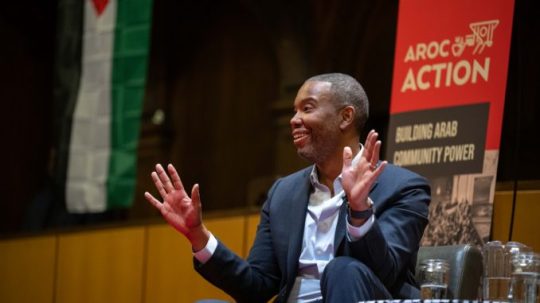
Black and Palestinian liberation movements find common ground in Oakland
The following are the introductory remarks by Lara Kiswani, Executive Director of AROC (Arab Resources Organizing Center), on Oct. 26, 2024, in Oakland, California. The occasion was author Ta-Nehisi Coates in Conversation with Dena Takruri on the Struggle for Liberation before a packed audience at the First Congressional Church, which has served as a venue for a number of progressive events throughout the years. AROC Action and Palestine Festival of Literature sponsored this presentation.
Coates, the best-selling author of Between the World and Me, discussed his most recent book, The Message. The book includes his thoughts on his visit to Palestine and what he saw and experienced there. The conversation included the Palestinian struggle for self-determination and the Black Liberation movement.
#FreePalestine#Black liberation#AROC#Oakland#solidarity#Ta-Nehisi Coates#ILWU#GazaGenocide#Struggle La Lucha
27 notes
·
View notes
Text
Mumia Abu-Jamal called the CUNY Palestine encampment to lend his support for all students across america in their efforts to divest their universities from the israeli apartheid regime and weapons manufacturers.
The struggle against american mass incarceration and the fight to free political prisoners here is directly tied to the freedom struggle of political prisoners in Palestine.
From prison & security companies like wackenhut back in the early 00s to allied universal today, the companies who run security, surveillance, and training in america are the same ones as in occupied Palestine.
This is one reason why Black liberation is bound together with Palestinian liberation.
During the Vietnam war Huey P. Newton said that the pigs occupy our neighborhoods like the us army does Vietnam. A pig is a domestic soldier and an army man is a policeman on the global beat.
The National Liberation Front of South Vietnam took up Huey’s analysis and said we fight the empire from the outside and you fight it from the inside.
This is how we should view our support for Palestinian self-determination: As a pincer move against us imperialism. The weaker we make America, the easier the fight becomes. For us and from them. And for all oppressed people around the world
83 notes
·
View notes